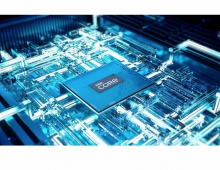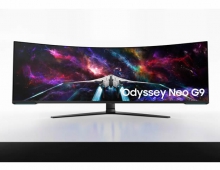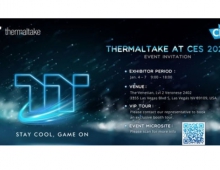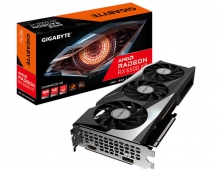
CES shows evolution of digital entertainment
The International Consumer Electronics Show is kicking off in Las Vegas in the first week of January.
With the legendary Comdex trade show officially closing its doors earlier this year, CES now ranks as the primary event of the year for the North American IT and consumer electronics industries.
Only the massive CeBIT show in Germany exceeds the sheer volume of attendees, exhibitors and announcements expected in Las Vegas from January 6 to January 9.
The crush of attendees can be overwhelming for first-time visitors who weren't around for the Comdex crowds of the late 1990s, but this year fewer people will attend the show than last year, according to the Consumer Electronics Association (CEA), which produces the International CES show.
The CEA spent more time qualifying attendees this year to make sure everyone in attendance has a legitimate attachment to the consumer electronics industry, said Kristen Peiffer, a CEA spokeswoman. The show is not open to the general public, and the CEA does not allow the blogging community or other independent observers to attend the show.
About 120,000 people are expected to gawk at large digital televisions and listen to national recording artists perform their songs courtesy of the satellite radio industry, she said. Last year, around 130,000 people attended the event, Peiffer said.
The 2005 show will have a record number of exhibitors with 2,400 companies expected to hawk their wares, Peiffer said. These companies will occupy 1.5 million square feet of the sprawling Las Vegas Convention Center, including space in the parking lot in front of the centre, she said.
The content of this year's show should be similar to last year's, in which a number of PC and consumer electronics companies laid out their visions of how the two product categories are becoming intertwined.
Companies such as HP, Microsoft, Sony and Philips have used past shows to paint a picture of this converged world, but those companies are now showing consumers the products that will make it all happen, said Stephen Baker, director of research with NPD Techworld in Reston, Virginia.
The modest success of products such as portable music players, smart phones, wireless home networking devices and satellite radio receivers shows where the rest of the industry is headed, he said.
Microsoft's Chairman Bill Gates will open the show on the evening of January 5. Gates unveiled concepts such as smart watches and Tablet PCs to CES attendees in past years. Last year, he discussed the Portable Media Center, a handheld video device.
HP's CEO Carly Fiorina will also address conference attendees in a keynote speech. HP rolled out several digital cameras, printers and media-oriented products over the past year to introduce consumers to the concept of managing their media files on a PC.
Fiorina is expected to introduce new PCs and new partners during her speech. Last year, she surprised conference attendees with news of a partnership with Apple to distribute the HP iPod and bundle the iTunes music store software with HP PCs.
Some PC-related companies, such as Intel and Gateway, reworked their approach to the consumer electronics market for 2005.
Paul Otellini, Intel's president, used last year's show to announce Intel's intention to produce a microprocessor for digital rear-projection televisions, in hopes of capturing some of the market dominated by Texas Instruments. But the company canceled that project in October, and now wants to spend more time getting its existing processors into new niches, such as set-top boxes and digital video recorders.
Intel is scheduled to make an announcement at the show with Linksys Group, a leader in wireless home networking devices, and Intel CEO Craig Barrett will also give a keynote address.
Gateway has pulled back from the consumer electronics market after completing the purchase of low-cost PC vendor eMachines earlier this year. Gateway still sells digital televisions, but has backed away from a grand strategy of introducing products in numerous consumer electronics categories and will not appear on the CES floor.
Traditional consumer electronics companies such as Sony, Panasonic and Samsung are not content to let the PC companies define the next era of the consumer electronics industry. All three companies plan to hold press conferences and take up significant space on the show floor with their LCD televisions, mobile phones, gaming consoles and digital video recorders.
While the PC companies and consumer electronics companies fight over the future direction of their products, a similar type of convergence is taking place in the mobile phone industry. Mobile phones are becoming much more sophisticated computing devices that can send and receive data, play music and video files and support game software.
Texas Instruments President and CEO Gary Templeton will update attendees on the company's plans for new chips for mobile phones, and Motorola Chairman and CEO Ed Zander will also present his company's view of the market.
CES showcases the business of digital entertainment, but savvy attendees make sure to put business aside, at least for a few hours, to take in the spectacle of the show floor. Weary travellers will still be able to sample reclining chairs with built-in massagers, zap aliens on video game demonstrations and soak up the free food and drink provided at numerous evening parties.
And if all that isn't enough, the pornography industry -- no stranger to PCs or digital televisions -- will hold its annual Adult Entertainment Expo down the street at the Sands Expo Center during the same week.
From DIGIT





















